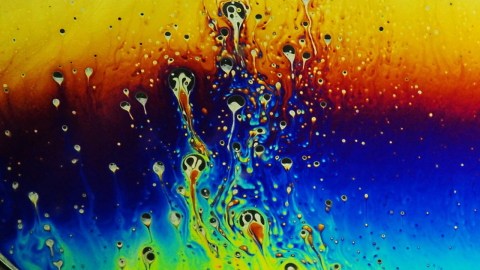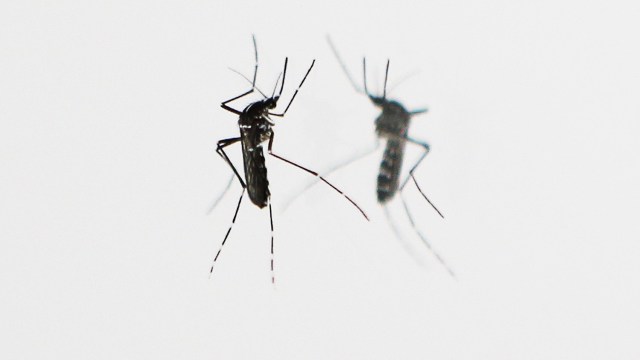Johns Hopkins: Psychedelics may be effective treatment for alcoholism

Flickr user Denis Pavlyuk
- A survey supplied to 343 individuals showed that psychedelic drugs such as LSD or psilocybin may have serious benefits when it comes to treating alcoholism.
- The majority of the participants reported having severe alcoholism, but 83 percent of these individuals significantly reduced their drinking to more manageable levels after taking a psychedelic.
- This research underscores the potential that currently illegal drugs may have in as methods of treatment, but more research is needed to say so for certain.
Richard Nixon’s war on drugs was misguided for several reasons, but one of the worst has to be the moratorium it placed on scientific research. As regulation and stigma piled on top of one another, it became more and more difficult to study the impacts and potential practical uses of recreational drugs. Today, we have the benefit of a more understanding world and are learning more about the chemicals we thought we knew everything about.
Researchers from Johns Hopkins University recently published a paper in the Journal of Psychopharmacology demonstrating the benefit of psychedelics in the treatment of alcoholism. The research team recruited 343 individuals to participate in a survey from drug discussion and research organizations such as the Erowid Center and the Multidisciplinary Association for Psychedelic Studies. In order to qualify for the study, the participants needed to meet the criteria for alcohol use disorder, or AUD.
The majority of these individuals (72 percent) had severe AUD. In the Diagnostic Statistical Manual (DSM), individuals with severe AUD are defined as possessing 6 or more of 11 symptoms, which include criteria like “Alcohol is often taken in larger amounts or over a longer period than was intended” and “A great deal of time is spent in activities necessary to obtain alcohol, use alcohol, or recover from its effects.” On average, the participants drank about 25 alcoholic beverages per week, had been drinking problematically for 7 years, and felt a significant amount of distress due to their alcohol use.
Crucially, each of these individuals had also had a psychedelic experience, mainly through the use of LSD or psilocybin. Only 10 percent of the study participants reported that they had taken psychedelics with the hope of treating their alcoholism, but after taking these drugs, a full 83 percent of the participants no longer met the criteria for AUD a year later. As a result of this improvement to their drinking habits, the participants reduced their drinking to just 4 drinks per week from their previous average of 25.
The researchers write:
“Although results cannot demonstrate causality, they suggest that naturalistic psychedelic use may lead to cessation or reduction in problematic alcohol use, supporting further investigation of psychedelic-assisted treatment for AUD.”

Photo by samane mohammadi on Unsplash
Some study participants also described insights that they gained from their psychedelic experiences: “It allowed me to feel whole again and forced me to reconnect with emotional trauma. It gave me insight into the nature of addiction and how it enslaves us — physically, mentally and spiritually. Addiction numbs us to any kind of growth as a human being.” Another stated that “I realize that I need help from a power greater than myself to overcome my alcoholism and that the psychedelics themselves were effective but cannot cure my disease.”
According to the study participants, the psychedelic experiences helped them overcome their addiction in four major ways. They believed that the psychedelic helped them to change their life values or priorities; that it changed their perspective on the future, such that they began valuing long-term benefits more; that it changed their own opinion of their ability to abstain; and that it reframed the task of quitting as a spiritual endeavor.
Interestingly, not only were the participants more likely to abstain from alcohol, but the process of quitting went more smoothly than their previous attempts, too. They reported that common experiences during alcohol withdrawal such as cravings, depression, anxiety, irritability, and restlessness were much less severe compared to the times the participants tried to quit without the aid of psychedelics.
The lack of federal financial support and prohibitive regulation makes it difficult to conduct experiments on the role of psychedelics as a means of therapy. Despite this, evidence is slowly accumulating that they have the potential to unmake grievous habits and heal significant mental harm. With more research such as this and with any luck, the scientific community will be able to assess psychedelics’ real potential and suggest evidence-backed policies and treatment methods to help improve people’s lives.





